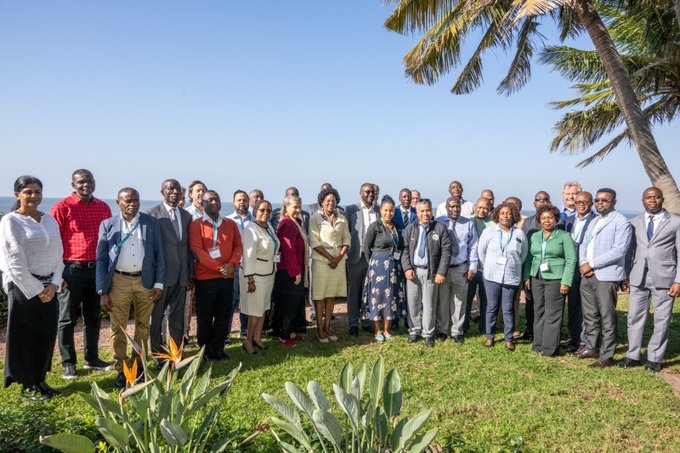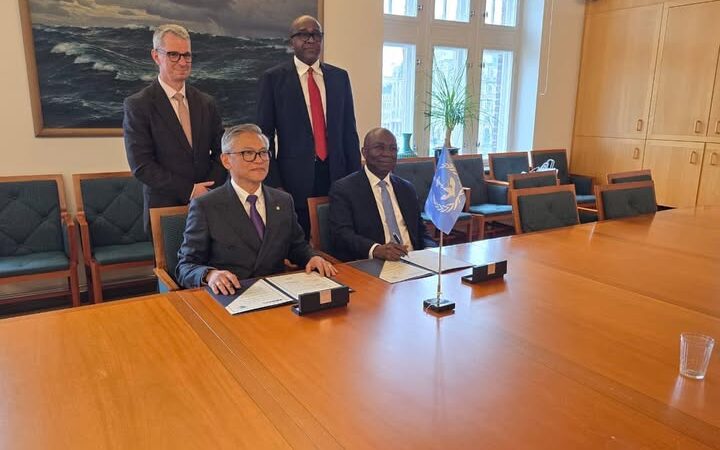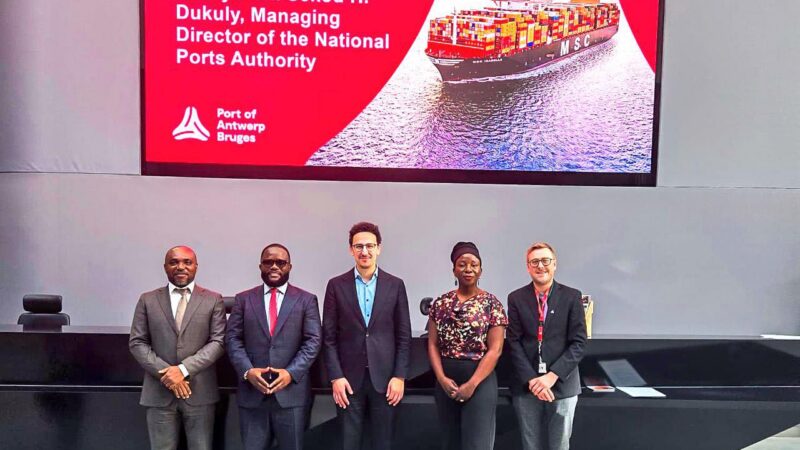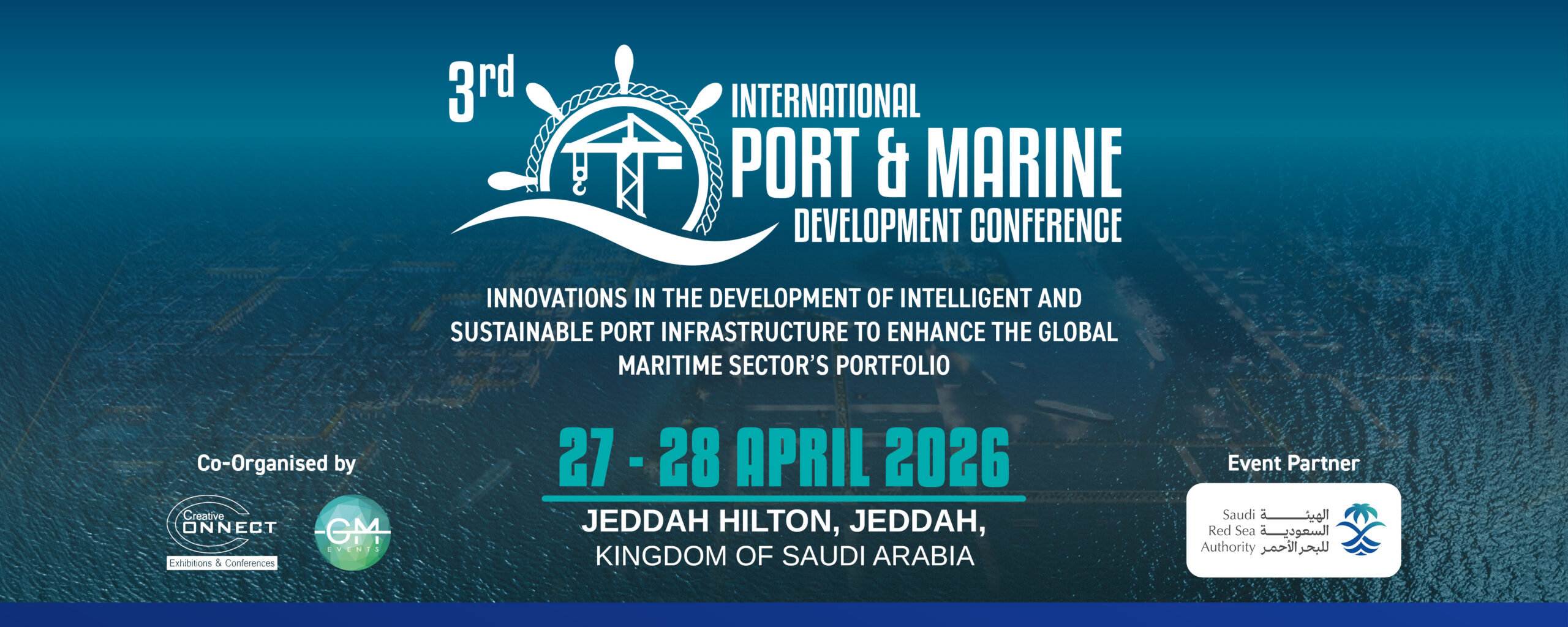AU-IBAR and SADC Pioneer Efforts in Fisheries Governance and Biodiversity Protection
In the SADC region, AU-IBAR is lending a hand to bolster regional monitoring, control, and surveillance systems aimed at protecting aquatic biodiversity and improving environmental management. Enabling the SADC Regional Monitoring Control and Surveillance Coordination Centre (RMCSCC) in Ka-Tembe, Mozambique, into operation is of particular importance.
It was in Ka-Tembe, Mozambique, that the SADC RMCSCC was formally established when the Charter establishing the MCSCC came into force in April 2023. The fight against illicit fishing and for the sustainable use of aquatic resources is the primary mission of this regional fisheries monitoring, control, and surveillance centre. The MCSCC also coordinates regional fisheries governance and MCS efforts. It promotes training, maintains a fishing vessel register, standardizes MCS protocols, and seeks financial sustainability. The SADC Regional Fisheries MCS Strategy (2022) and the Regional Plan of Action to Combat IUU fishing support these efforts.
In addition to the MCSCC Secretariat and the Board of Directors, the MCSCC’s governance structure comprises the Committee of Ministers in charge of Fisheries and the Technical Committee. In its newly formed Board of Directors (BOD), eleven individuals will serve staggered two-year terms that are extendable for a further two-year term. Members of the BOD are chosen through a meritocratic process that begins with nominations from SADC member states.
An important step towards enhancing regional systems for the preservation and conservation of aquatic biodiversity in the SADC region has been taken with the announcement that the SADC Secretariat, in collaboration with AU-IBAR, is hosting the first meeting and training session for the SADC RMCSCC Board of Directors from 19-21 June 2024. The purpose of the workshop in Maputo is to officially launch the SADC RMCSCC Board of Directors, have its first meeting, kick off its annual meetings, and provide operational process training to its members. This effort is to guarantee the sustainable use of aquatic resources for the benefit of present and future generations by improving governance, cooperation, and enforcement. The workshop is being attended by AU-IBAR staff, selected partners, resource persons, SADC secretariat staff, and BOD members approved by SADC ministers.
SADC comprises 16 member states, including Angola, Botswana, the Union of Comoros, and the Democratic Republic of Congo. The region features marine coastal states with extensive coastlines and rich fish stocks, while landlocked countries benefit from shared inland waters like Lake Malawi/Niassa/Nyasa and Lake Tanganyika. SADC’s fisheries sector includes small-scale, semi-industrial, and industrial operations. In 2008, SADC Ministers committed to combating Illegal, Unreported, and Unregulated (IUU) Fisheries, establishing the Regional Monitoring, Control, and Surveillance Coordination Centre (MCSCC) due to nearly one billion dollars in losses from IUU fishing. However, the MCSCC is behind schedule and needs enhanced support for operational structures and services, with assistance from the African Union Inter-African Bureau for Animal Resources (AU-IBAR).
The SADC fishing industry faces competition from subsidized fleets and illegal operators. Marine resources vary, with cold-water fisheries on the West coast and warmer-water fisheries on the East coast, plus significant inland production from lakes like Lake Victoria and Lake Tanganyika.
SADC’s fisheries production has grown since the 1950s, despite fluctuations in total landings recently. Aquaculture has increased significantly, with member states aiming to maintain or boost current catch rates through improved management and effective MCS.
There is tremendous social and economic potential in Africa’s extensive aquatic resources, which include rivers, lakes, floodplains, waterways, and wetlands. However, much of that potential remains untapped. To help ensure the long-term success of the blue economy, the African Union (AU) has officially approved the Africa Blue Economy Strategy (ABES). To improve institutional capacities, policy frameworks, and regulatory settings for the sustainable use and conservation of aquatic biodiversity and ecosystems, the AU-IBAR is implementing a three-year project called “Conserving Aquatic Biodiversity in the African Blue Economy” with the support of SIDA. Mozambique’s Ka-Tembe Surveillance Coordination Centre is set to receive significant financial and technical support as part of this initiative.
Source : AU-IBAR






